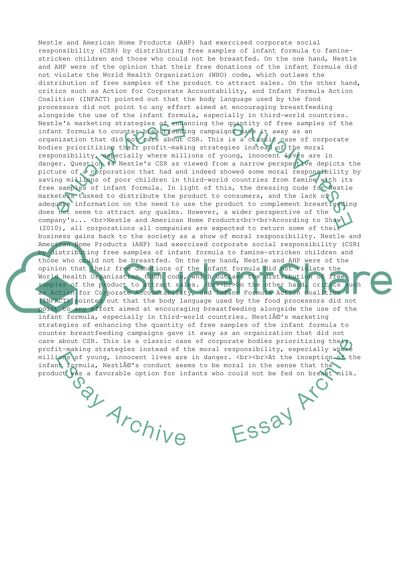Cite this document
(“Nestle and American Home Products Essay Example | Topics and Well Written Essays - 1000 words”, n.d.)
Nestle and American Home Products Essay Example | Topics and Well Written Essays - 1000 words. Retrieved from https://studentshare.org/business/1485964-nestle-and-american-home-products
Nestle and American Home Products Essay Example | Topics and Well Written Essays - 1000 words. Retrieved from https://studentshare.org/business/1485964-nestle-and-american-home-products
(Nestle and American Home Products Essay Example | Topics and Well Written Essays - 1000 Words)
Nestle and American Home Products Essay Example | Topics and Well Written Essays - 1000 Words. https://studentshare.org/business/1485964-nestle-and-american-home-products.
Nestle and American Home Products Essay Example | Topics and Well Written Essays - 1000 Words. https://studentshare.org/business/1485964-nestle-and-american-home-products.
“Nestle and American Home Products Essay Example | Topics and Well Written Essays - 1000 Words”, n.d. https://studentshare.org/business/1485964-nestle-and-american-home-products.


